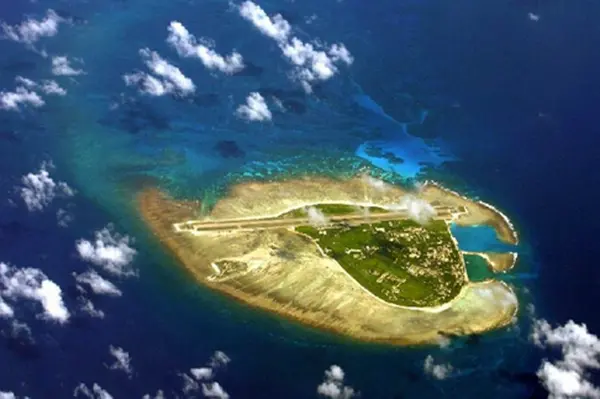Whilst an arbitral tribunal itself in dispute will decide on the South China Sea case on July 12, observers believe that the arbitration will not help solve the dispute, and that the problem will not be resolved until the Philippines returns to the negotiating table.
"The South China Sea dispute is beyond jurisdiction of the arbitral tribunal," according to Yi Xianhe, an expert on international law from China's Wuhan University.
Yi said the dispute, essentially about territorial and maritime delimitation, does not concern the interpretation or application of the United Nations Convention on the Law of the Sea (UNCLOS).
China made an optional exceptions declaration in 2006 pursuant to the Convention, excluding disputes concerning, among others, maritime delimitation from the UNCLOS third party dispute settlement procedures. Some 30 countries have made similar statements.
The tribunal's jurisdiction over the claims is "thoroughly erroneous" and "essentially a political decision," according to a statement by the Chinese Society of International Law.
China and the Philippines had previously agreed to settle disputes through a series of bilateral instruments and the Declaration on the Conduct of Parties in the South China Sea.
"The Philippines' resort to arbitration has obviously breached the doctrine of estoppel," said Jia Yu, deputy director of China Institute for Marine Affairs.
Many foreign experts also express their opinions on South China Sea arbitration.
The real nature of a dispute between China and the Philippines over the South China Sea is about territorial sovereignty, which is beyond the jurisdiction of an arbitral tribunal, a German expert, Stefan Talmon, director of the Institute of Public International Law at the University of Bonn,has said.
The Hague-based Arbitral Tribunal on the South China Sea established at the unilateral request of the Philippines has no jurisdiction over the case, as disputes over territorial sovereignty are not governed by the United Nations Convention on the Law of the Sea (UNCLOS), Talmon said.
Talmon also criticized the tribunal for failing to scrutinize the documents referred to by the Philippines in its submission and ignoring China's position before rendering an award on Oct. 29, 2015 when it ruled that it has jurisdiction over the case.
Vojtech Filip, vice speaker of the Parliament of the Czech Republic and leader of the Czech Communist Party, said Philippine position is self-contradictory on the South China Sea case.
"I am convinced that in this respect the proposed arbitration is extremely premature, outside the framework of international law, and in its own way disrupts that which the Philippines have worked for in the past -- a unified approach to all countries that border the South China Sea," Filip told Xinhua in a recent interview.
America's objective is to contain a rising power, which presents itself as a major challenge to US global hegemony, said Shannon Ebrahim in a commentary published in The Star newspaper.
She argued that the most effective way for the U.S. was to exert control, through proxies, over China's gateway to the sea.
This strategic waterway has turned into a game of chess between China and some of its neighbours along the South China Sea which have made a series of territorial claims and are backed by the US, Ebrahim said.
"The US claims its interest in the South China Sea is to protect the freedom of navigation as US trade through this waterway, but China has posed no threat to international navigation in the waters of the South China Sea and also seeks to protect its own trade," she said.
Former Hungarian Prime Minister Peter Medgyessy said he firmly believed that the only way to resolve South China Sea dispute was through peaceful and direct negotiations that included only the countries of the region.
The talks to solve South China Sea dispute should not rely on an intermediary, Medgyessy told Xinhua in a recent interview.
Medgyessy noted that disputes regarding the South China Sea were quite long-standing. External factors, he said, would be unable to resolve this exceedingly complicated legal, military, and economic issue. In fact, any external international organization or country could make resolution more difficult, he added.
(APD)
 简体中文
简体中文

